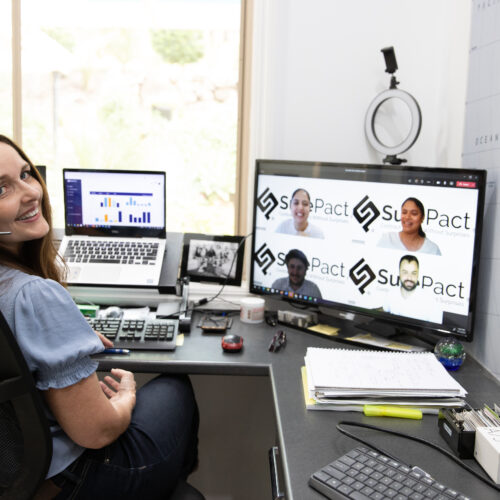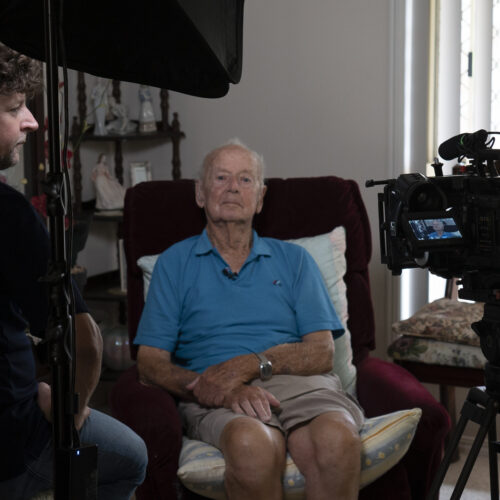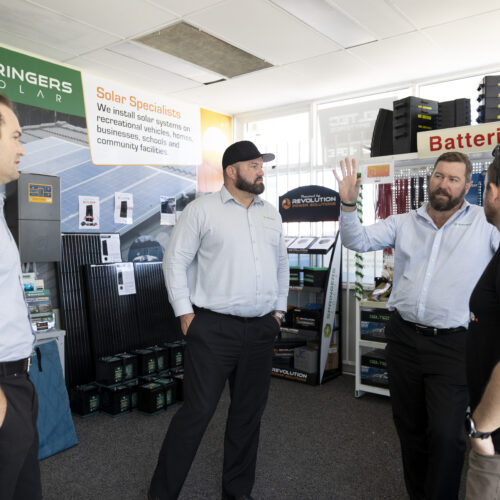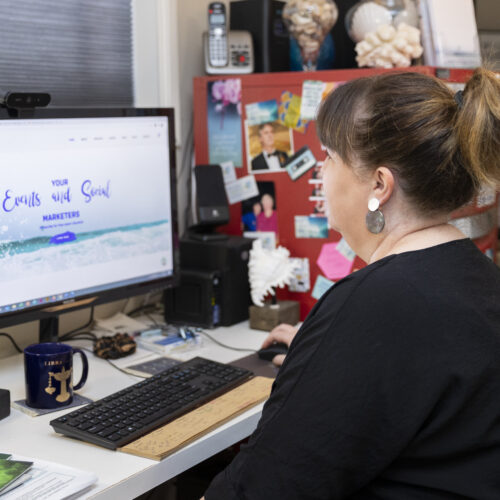STEM Punks is an education venture, founded in 2017 by Michael Holmstrom. The business focuses on making science, technology, engineering, and math (STEM) education accessible to children, while supporting and upskilling educators to make it fun to teach.
Michael, an engineer, has founded multiple businesses. He has experience in growing startups to large-scale businesses using innovation, technology and commercialisation. Michael believes that real-world problems can be solved by applying STEM principles with an entrepreneurial problem-solving mindset and the best way to make a real difference in the world is through education. So, STEM Punks was born, backed by a core team of passionate educators.
At the start of 2020, STEM Punks’ focus was on supporting schools by offering school incursions, professional development workshops for teachers and longer-term strategies to support excellence in STEM learning. While STEM Punks had some online material, this was aimed mainly at schools - not the home market.
We realised our customers were still there and, while some of our competitors did nothing, we took the chance to do something online that no one else was doing.
COVID impacts
When the COVID-19 crisis hit, the immediate impact for STEM Punks was severe. School incursions, their main source of business, simply stopped. In under two weeks STEM Punks lost 6 to 8 months of revenue. While the need for education was still there, the team was not able to reach school students and teachers in the same traditional ways. At the same time, the pervading uncertainty and fear created a period of inertia in the decision-making of governments, education institutions, and businesses.
Michael realised early on that he needed to set a new vision and direction for his team. This was daunting, but after some reflection and soul-searching, he was able to see a way forward and identify opportunities for growth. He had an open and honest conversation with staff and while there were challenges ahead, the path forward would enable a whole new business to emerge. This decision meant having to let go of a few team members, but the majority stayed on and embraced the new opportunities. Through the change in direction he also attracted three new staff members.
“It forced us to stop and reflect on our strategy going forward. We asked ourselves: What are we really good at? We realised our customers were still there and, while some of our competitors did nothing, we took the chance to do something online that no one else was doing.” The pandemic gave STEM Punks the opportunity to grow and scale the business online in 2020.
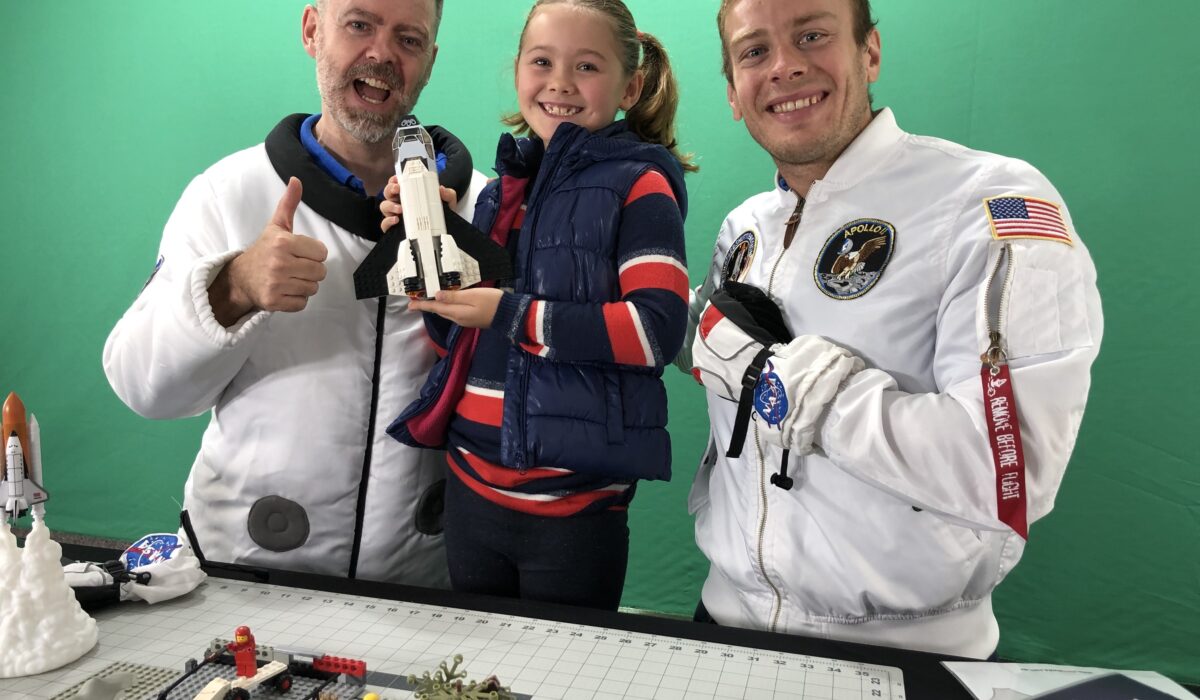
Response
The STEM Punks team renewed and refocused their strategy. They applied Design Thinking to solve the problem: “How can we develop a quality online education model in which we can excel?”
With limited time and resources, they took advantage of available tools and new technologies to develop their online program. Using an established Learning Management System (LMS) as the backbone of their online delivery, their leading educators had the basis they needed to provide online STEM programs underpinned by a sound pedagogical approach and structured framework.
STEM Punk’s response to the crises comprised of:
- New product development: STEM Punks offered online education content for the homeschool market. This was suitable for parents supporting kids learning from home as well as teachers. Their content was inspired by MythBusters, but “on steroids.” They used production live feeds and some recorded sessions with experts, leading Australian scientists, and industry partners to make sessions exciting and entertaining.
- Execution speed in production: While they did not have the best equipment or a lot of experience to start off with, they proceeded with what was good enough and learnt by doing. “We focused on leveraging our resources and being smart about our investments and we were able to learn fast, fail fast, and improve our production quality through practice.”
- Local and international collaborations: COVID-19 provided an opportunity to bring in global speakers and the team discovered local businesses they could work with too. For example, they reached out to Gilmour Space on the Gold Coast for a segment on rocket science and did a segment on STEM skills in materials and heat transfer with a Moreton Bay Blacksmith. These local collaborations show how to apply problem-solving skills and that future careers need not be just about drones or artificial intelligence applications.
- Give-back philosophy: The first 6-8 weeks of content STEM Punks provided was free. It comprised live sessions for schools and the homeschool market, where they saw a great need during lockdowns. They also provided free content for teachers in the form of 15 modules aligned with the national curriculum without the need for additional equipment. “The crisis called for the ‘we’, rather than ‘I’, approach. It’s about building community and doing the right thing,” Michael said.
The STEM Punks team embraced the challenge and started to solve the problem with new energy and ideas, adding to business development opportunities. They have started to reap the rewards of the hard work and commitment they’ve put in, as they have built a large online global audience.
The STEM Punks team embraced the challenge and started to solve the problem with new energy and ideas, adding to business development opportunities.
Future
STEM Punks are unlikely to go back to how they operated in 2019. The new online approach provides a pathway to scalability, which enables them to attract global strategic partners and reach a much larger market. STEM Punks are continuing to develop their video production capability and have significantly boosted their online store. Prior to COVID they were selling 20 products in their online store, now they have more than 450 products.
